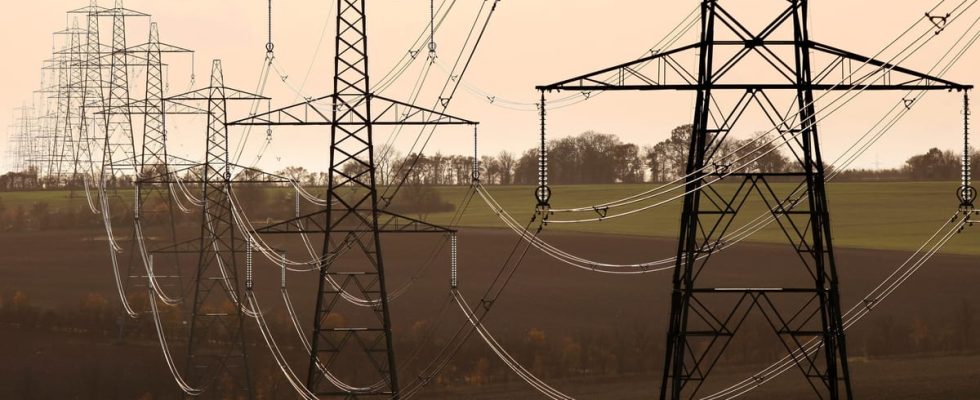Press play to listen to this article
Voiced by artificial intelligence.
LONDON — The U.K.’s energy grid is just not ready for the shift to clean power.
That’s the stark finding of a year-long, government-commissioned review published Friday, which warns the country’s existing energy policies are “badly out of date” as a crucial decarbonization deadline looms and Britain eyes a future of electric cars in every driveway and heat pumps in every home.
Getting buy-in for the major changes needed will be a mammoth task, it warns — and could even require cold hard cash payments to a pylon-skeptic British public.
Despite recent anti-green noises, the British government has strict net zero targets, including an interim goal of decarbonizing its power grid by 2035.
Overhauling and expanding the electricity network — the swathes of cables and pylons covering the U.K. — will be central to determining whether the government hits or misses those lofty aims.
In his long-awaited report, Nick Winser, the government’s electricity networks czar, warns that tens of billions of pounds worth of new grid infrastructure will be needed by 2030 in order to hit the country’s climate goals. That’s no easy task.
The National Grid, which oversees Britain’s network, estimates that five times as many high-voltage transmission lines — suspended from pylons or buried underground — will need to be installed before 2030 as were built in the past three decades combined.
This additional infrastructure may require £54 billion of investment, according to forecasts.
Grid capacity will have to expand in the years ahead to meet higher electricity consumption, as more people move to electric vehicles and electric heating in their homes. The grid also needs to be rewired to accommodate more of the U.K.’s electricity coming from offshore wind farms rather than inland gas power stations.
Winser’s report finds it will be “very hard” for the U.K. government to meet its 2035 deadline without building more quickly — and he floats one suggestion for speeding up delivery.
People living near new pylons and other net zero infrastructure should, he argues, get cash compensation. He pitches a combination of both “lump sums” paid to households near new pylons and community funds managed locally and spent on decarbonization schemes.
Pylon backlash
Existing grid projects have sparked fierce opposition in many parts of the U.K., while estate agents have said proximity to power lines can affect house prices.
In a letter to Energy Secretary Grant Shapps, who is expected to endorse the findings, Winser warns that Britain lacks a clear strategic plan for the future of its grid and asks whether, without that: “Is it so surprising that such alarm, emotion and controversy is aroused by the schemes?”
Speaking ahead of the report’s publication, Winser did not put a figure on how much compensation households could receive.
But he pointed out that it can be 10 times cheaper to build an overhead transmission line than to bury the cables underground, arguing that some of the difference in cost could go towards compensating local people “generously.”
Winser is calling for the creation of a new “Strategic Energy Plan for Great Britain” — backed by government — to help forecast likely locations of electricity supply and demand and set out where power lines are actually needed.
He argues that this could unlock investment in infrastructure ahead of actual electricity need, while making it clear to planning authorities — and local communities — that projects have full political and regulatory support.
But a national public information campaign is also required to set out the changes ahead and explain the link to net zero, he warns.
The stakes could hardly be higher. Then-Climate Change Committee chair John Gummer — tasked with scrutinizing Britain’s climate plans — told POLITICO earlier this year that if the U.K. has any hope of fulfilling its big promises, “we need to face up to three words. It’s not education, education, education … It’s grid, grid, grid.’”
Abby Wallace contributed reporting.

